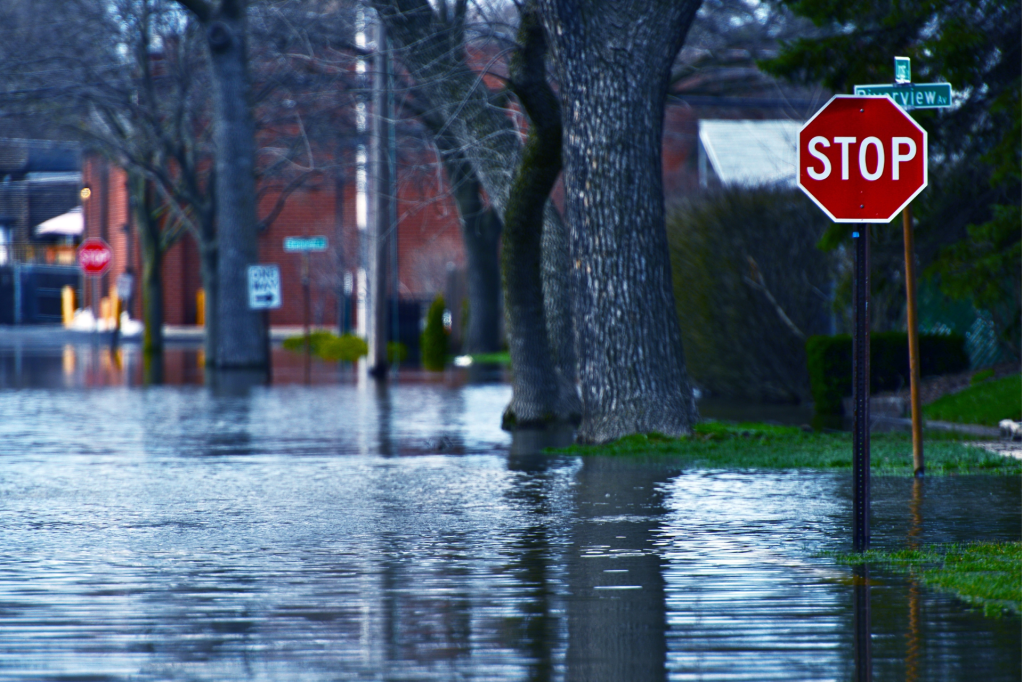This post captures select new content published by the Federal Reserve between April 1 and June 30, 2024, on the topics of housing, child care, equitable development, small business, employment, weather resiliency, and Native communities.
Each quarter, Fed Communities will retrospectively share new community development-related research, analyses, and articles from all 12 Federal Reserve Banks and the Board of Governors in one convenient place.

Affordable housing continues to dominate headlines and conversations as communities across the nation grapple with the challenge of providing adequate housing for people, especially those with low and moderate incomes. Check out some of the latest housing articles and research from Fed experts.
Community Issues and Insights 2024: A Record-High Share of Respondents Observed a Decline in Affordable Housing
By Matt Klesta
Home Lending Trends from Select Counties in Kentucky, Ohio, and Pennsylvania: 2018–2022
By Matt Klesta
Where are the Twin Cities area’s movers moving to?
By Tyler Boesch, Ben Horowitz and Kim-Eng Ky
Manufactured Housing Communities in New Jersey: The Basics
By Eileen Divringi
Manufactured Housing Communities in Delaware: The Basics
By Eileen Divringi
Homeownership Rates by Sexual Orientation, Gender Identity
By Ana Hernández Kent and Sophia Scott
Estimating the importance of monetary policy shocks for variation in the US homeownership rate
By Daniel Dias and Joao Duarte

Child care continues to garner significant attention because of its critical impact on families, employers, and the economy. As more parents enter the workforce, the demand for affordable, high-quality child care and education continues to rise. Dive into recent child care articles and research from Fed experts.
Childcare Arrangements and Costs in the United States and the Seventh District
By Daniel Hartley and Leslie McGranahan
Michigan’s Tri-Share Program: One Promising Childcare Solution for Working Parents
By Heidi Reijm
Responding to the Childcare Needs of Shift Workers: Examples from the Automotive Industry
By Kristin Dziczek
The Importance of High-Quality Early Childhood Education for Children and the Economy
By Lisa A. Nelson and Michelle Volpe-Kohler
Childcare at What Cost? Positioning the price of Childcare within the Context of Household Income
By Brittany Birken and Herman Knopf
Cedar Valley Kids: Addressing local Childcare Needs Through Community Collaboration and Employer Partnerships
By Dustin Ingram and Maria Castro
The Labor Market for Childcare Workers
By Kristin Butcher, Elizabeth Kepner, Kelli Marquardt and Brianna Smith

Equitable development strengthens economies by creating inclusive, resilient, and vibrant communities. From closing gaps and increasing access to sharing and deploying resources after a natural disaster, equitable development is an essential tool for every lower-income community. Explore the latest equitable development articles and research from Fed experts.
Is federal broadband funding going to states that need it most?
By Marycruz De Leon, Kassandra Huhn, Prithvi Kalkunte, and Xiaohan Zhang
Funding to address broadband gaps in the Eleventh District
By Marycruz De Leon, Kassandra Huhn, Prithvi Kalkunte, and Xiaohan Zhang
Community Conditions Survey goes national
By Steven Howland
State capacity grants will support digital access, tools and skills
By Marisa Martinez
More ears to the economic ground
By Karmi Mattson and Shannon Lewis
Examining the Origination and Sale of Loans by Community Development Financial Institutions
By Jacob Scott, Maria Carmelita Recto, and Jonathan Kivell
Housing, Jobs, Credit Access, and the Power of Communities Coming Together
By Mary Godleski-Cantin
Consumer Credit Score Dynamics During the COVID-19 Pandemic and the Great Recession
By Sisi Zhang and Lei Ding
State Anchor Economy Impacts
By staff writers at the Philadelphia Fed
Community Investment Council Shares Insights on Fifth District Community Development Needs
By staff writers at the Richmond Fed
Help Us Tell the Stories of Southeastern Community-Based Economies
By Grace Meagher, John Rees, Julie Siwicki, and Tiffani Williams
Around the District: Returning to Alaska for Some Inspiring Community Engagement
By Christina Prkic
Gen Z’s Mental Health, Economic Distress and Technology
By Nicole Summers-Gabr, Violeta Gutkowski, and Alice L. Kassens

Small businesses are the backbone of the nation’s economy. They are also a key economic driver of strong, robust, and adaptable communities. Check out the latest articles and research on small businesses from Fed experts.
2024 Firms in Focus chartbooks on small business data
By Small Business Credit Survey (SBCS) analysts at the Federal Reserve Banks
Residential Mobility and Neighborhood Characteristics in Chicago
By Robin Newberger, Mark O’Dell, Taz George, and Sharada Dharmasankar
Small Business Credit Survey: 2024 Insights from New Jersey, Pennsylvania, the Philadelphia Metro, and the Third District States
By Alaina Barca

Employment has many layers. Employers strive to attract and retain workers with the right skills and employees seek work that offers personal and professional growth opportunities. Discover how education and workforce development sectors are crucial in preparing individuals for fulfilling careers. Stay informed about the nation’s economic health through the monthly jobs reports. Explore the latest articles and research on employment from Fed experts.
There’s good news in the economic data, but low- and moderate-income households face challenges
By Marybeth Mattingly and Amy Higgins
Job seekers with associate degrees likely to benefit from short-term credentials
By Anna Crockett, Emily Ryder Perlmeter, and Xiaohan Zhang
Universal licensure recognition: A case study of Montana
By Tyler Boesch, Ayushi Narayan, Mary Hogan, and Ryan Nunn
A Measure of the Anchor Economy’s Impact and Importance
By Patrick T. Harker
Economic Reliance on Anchor Institutions
By Patrick T. Harker, Deborah Diamond, Theresa Dunne, and Sisi Zhang
Occupational Segregation and the Role of the Public Workforce System: An Examination of Individual Training Accounts
By Kyle DeMaria, Theresa Dunne, Ashley Putnam, and Keith Wardrip
A ‘Grow Your Own’ Approach to Workforce Development in Northwestern North Carolina
By staff writers at the Richmond Fed
Benefits Cliff Coaching with the Atlanta Fed’s CLIFF Tools: Implementation Evaluation of the National Pilot
By Alexander Ruder and Ellyn Terry
The immigrant population of the Ninth District has grown: What does it mean for the labor force?
By Erick Garcia Luna
Domestic outsourcing is on the rise. What happens when the practice is banned?
By Lisa Camner McKay
Tapping the Brakes: The Effect of the 2023 United Auto Workers Strike on Economic Activity
By Gisela Rua and Maria D. Tito
Rural Employment Disparities by Race, Ethnicity, and Region
By Andrew Dumont

Weather incidents of increasing severity and cost are prompting communities, homeowners, governments, and the property insurance industry to address the urgent need to adapt to the impacts of weather-related events. Check out the latest articles and research from Fed experts on weather-related disasters and their impact on the economy, and on lower-income communities in particular.
Risk and Resilience: How Weather-Related Disasters Impact Economically Marginalized Communities
By Dontá Council, Grace Meagher, and Leah Cabrera
Flood Risk and Basement Housing in New York City: The Impact of Extreme Weather on Vulnerable Housing Stock
By Ambika Nair and Claire Kramer Mills
Flooding Impacts on Household Finances: Insights from Focus Groups in New York City
By Dyvonne Body
Neighborhood Income Inequalities in Flood Hazards Across the Third Federal Reserve District States
By George C. Galster, Theresa Dunne, and Lei Ding
How Much Danger? A Comparison of Alternative Measures of Flood Hazards Across the Third Federal Reserve District States
By Lei Ding, Theresa Dunne, George C. Galster, and Joshua C. Galster

Native communities have unique histories and cultures. They also face distinct, and in some cases unique, economic challenges. Check out the latest articles and research on Native communities from Fed experts.
Long-term deposit in Native-owned bank spurs investment in Habitat Denver
By Ariel Cisneros
Celebrating Indian Country’s distinctive communities
By Caryn Mohr
Native federal contracting serves communities
By Jacqui Baldwin-LeClair
Tax code constraints limit tribal tax-exempt bonding
By Matthew Gregg and John Morseau
Native CDFIs connect Indian Country to credit and capital
By Michou Kokodoko
Share
- Click to email a link to a friend (Opens in new window)
- Click to print (Opens in new window)
- Click to share on LinkedIn (Opens in new window)
- Click to share on Facebook (Opens in new window)
- Click to share on Twitter (Opens in new window)
- Click to share on Reddit (Opens in new window)
- Click to share on Mastodon (Opens in new window)
- Click to share on Tumblr (Opens in new window)

